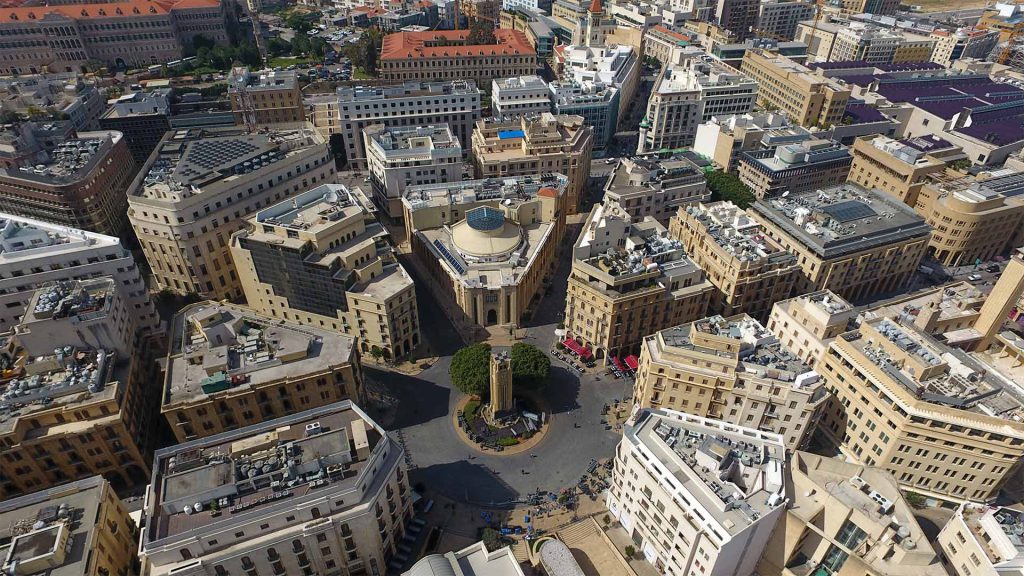I worked in real estate for a few years in Lebanon, and still follow up with the industry’s audacious activity and bizarre business stories. My passion for real estate parallels my passion for writing, but where the passions differ lies in the generations of real estate practice upheld by my family. After all, who doesn’t love real estate?
In every country, real estate is an economic bedrock. Individuals of any society use real estate as a means of achieving financial wealth. They welcome real estate practices with open arms. The opposite is true in Lebanon, where real estate developers, agents, and market players alike face a lot of scrutiny. I never truly understood why.
Eventually, it became clear to me that people took the sector’s few rotten apples and used them as the poster child for the whole industry –but that would be the same as generalizing that all doctors partake in child organ trafficking. While distrust and disdain is common in Lebanon, it was unfair to the honest property investors.
Let’s rewind the clock back a bit. It wasn’t long ago that the real estate sector was going through its own existential crisis. Between 2008 and 2010, the Lebanese real estate sector enjoyed an unprecedented boom as a result of huge inflows of foreign currency coming from Lebanese expats and Gulf investors. But when the war in Syria broke out, the sector undoubtedly took a hit.
The slump reached an all-time low circa 2018 when the supply in the market hugely outstripped demand. Luxury towers remained vacant as Gulf money dried up, and local demand opted for smaller, more humble apartments.
Rather than incentivize the market, and help get it back on its feet, the Central Bank and the banking sector doubled down on the real estate sector’s woes. Through the allusiveness of phony interest rates, would-be investors dismissed any notion of investing in the property sector and instead opted to park their cash in the bank for “interest.”
This proved controversial for developers, who became increasingly strapped for cash and had to put a lot of their projects on hold.
Another problem was that many developers had taken bank loans, which is why it made no sense that these same banks would further tighten the noose around their own clients’ necks. Faced with bankruptcies, developers had no choice but to default on their loans and have their properties seized.
Fast forward to today and the tables, to put it kindly, have turned. Today, the banks wear the villain’s black hat. As for real estate developers, they are viewed as safe haven providers for that same depositor that chuckled at the notion of buying property only a year ago. Lebanon’s banking crisis served as a blessing in disguise for the Lebanese real estate market.
Early on in the crisis, when banks started enforcing illegal capital control measures, depositors sought whatever means possible to funnel their money out of banking jail. A prime target for desperate depositors was the real estate market.
It was a match made in financial heaven, or hell, depending on how you look at it. Depositors needed to get their money out of the banks into more tangible –at the very least visible– assets.
Developers needed to clear a huge chunk of debt off their books. So in the spring of 2020, Lebanon saw a spike in real estate activity as checks were being issued but not cashed, and properties were being sold, but not occupied.
This frenzy of issuing checks, selling real estate, unloading debt, carried on for a while, and saw many big name players take part in the action. To try and comprehend just how ginormous this activity was: Just recently local real estate conglomerate Solidere recorded a net profit of $49 million in 2019. How much did Solidere register this same time last year, before the banking crisis? $116 million…in net losses.
The unquestionable loser in all this has to be the banks, the ones left holding the one instrument deemed worthless, the Banker’s Check. Today, after clearing their books and becoming privy to the dire state of the banking sector, real estate developers battened down the hatches, and in the most absurd turn of events, have become the ones rebuffing deals.
If you walked into a real estate developer’s office a year ago, you would’ve found a businessman in a wrinkled up suit slumped over a large wooden desk, ready to sell you his kidney to strike a deal. A scene that would suggest he would soon be out of business.
Now, if you walk into that same office, you would find the return of his smug smile, a scent of triumph in the air. Maybe, even, a reappearance of the proverbial cigar. You can’t really blame him. For a long time, it was he who received the short end of the stick.
Today in Lebanon, real estate is once again king. Proving the age-old idiom still holds true: “When there’s blood on the streets, buy property.”
